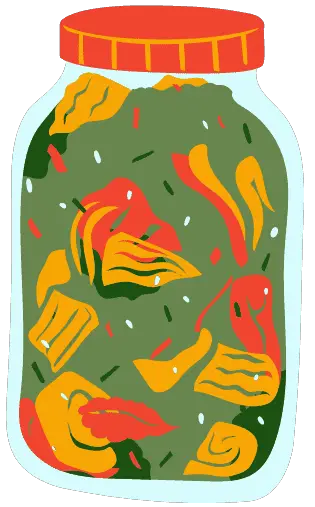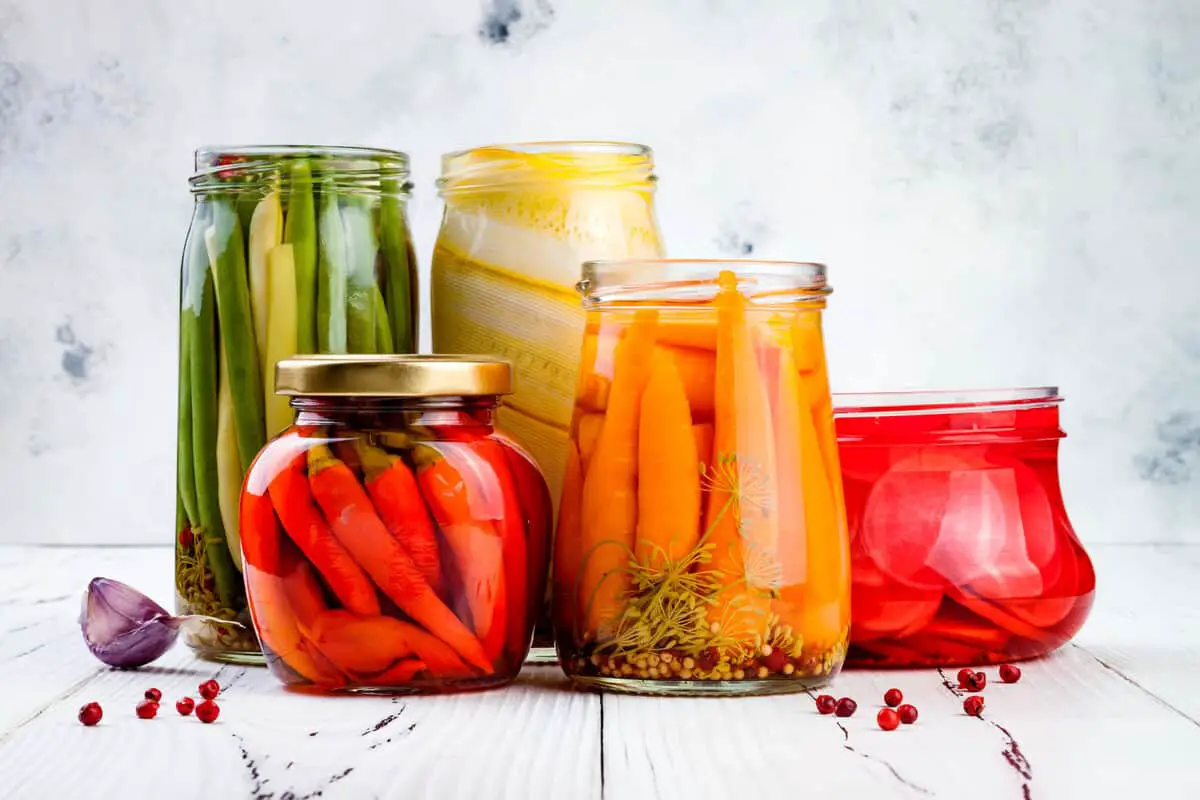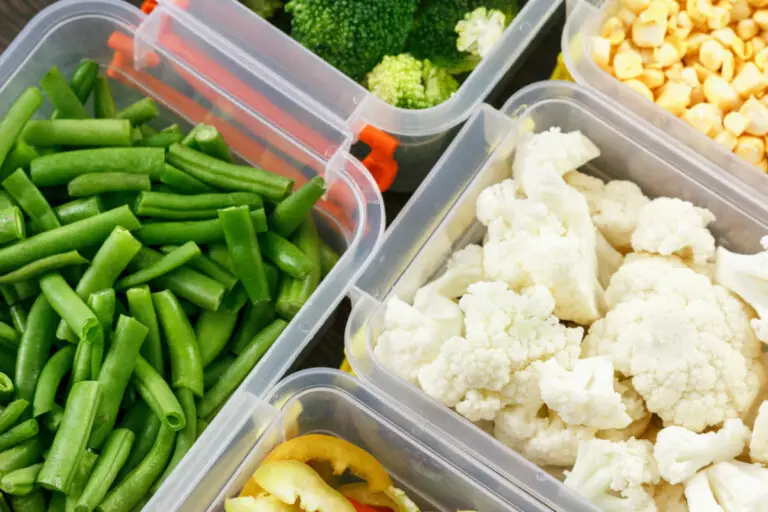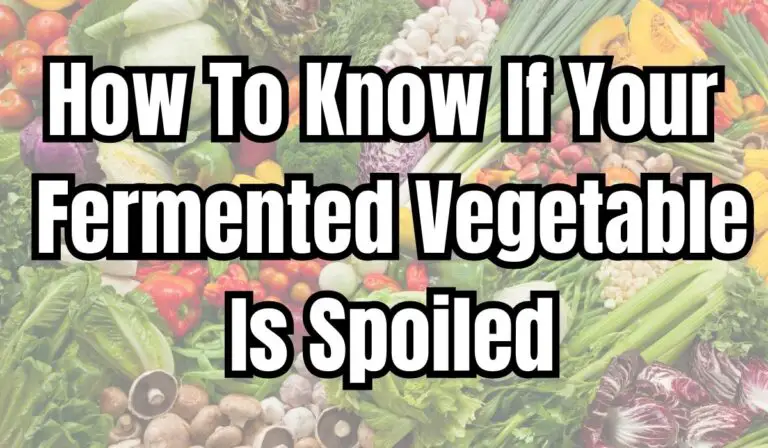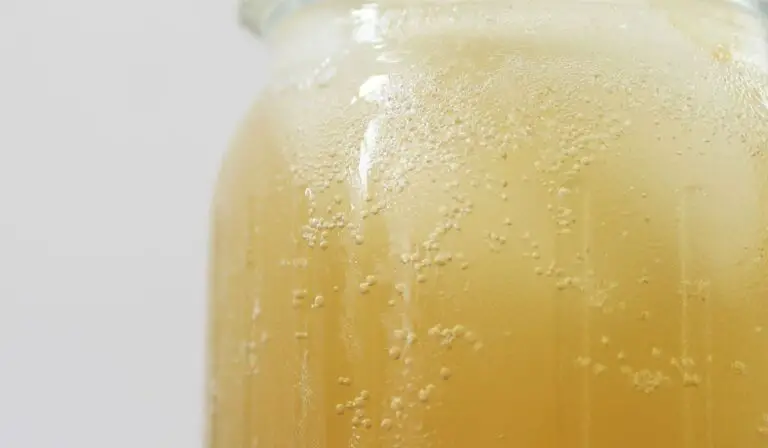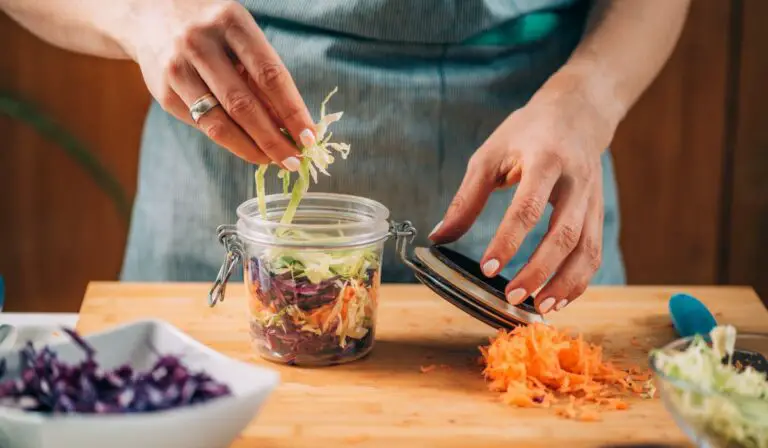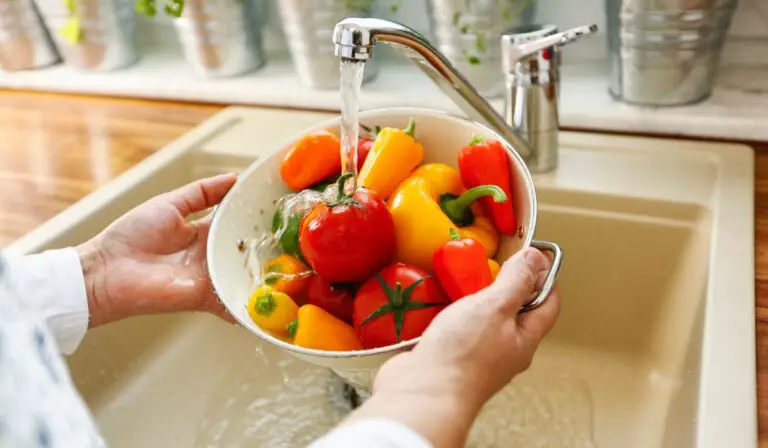Adding Vinegar to Fermented Vegetables: Is It Ok?
The common conception is that we should use vinegar to pickle and salt to ferment. But those two processes interlace in many aspects, and in the search for deeper, more complex flavours, one question can arise.
Can I add vinegar to my fermented vegetables? The short answer is: you can! Vinegar can be added at the beginning of the fermentation process or after it is prepared. Adding vinegar can bring some benefits, but you must be careful not to harm your fermentation project.
Vinegar has acidic properties that might help your fermentation to stay safe, preventing unhealthy bacteria growth. But its addition has to be done the right way. You should put the right amount of vinegar, and the environmental conditions must be favourable.
What Will Adding Vinegar Do to My Ferments?
Vinegar is an ancient food preservative because of its acidic properties and is commonly used in the process of pickling. Pickled vegetables at the supermarket have a long shelf life because of the acidic environment they are inserted in. Lactic-fermented vegetables are also preserved for a good amount of time for the same reason.
An acidic environment will help preserve food. This is why fermented vegetables and pickled vegetables last so long!
In lactic fermentation, healthy bacteria called lactic acid bacteria are responsible for producing lactic acid, creating an acidic environment. The pickling process, on the other hand, turns the environment acidic with the addition of vinegar. This means that pickled vegetables do not contain the live healthy microbes we have in a lactic fermentation. So, if you’re looking for great taste and health benefits, you should go for fermentation.
Don’t get me wrong, I can see the value in pickling, and I am definitely not preaching against it! Sometimes I might quickly make some pickled onion or buy a jar of “sauerkraut” at the shop. However, I know that most of the “sauerkraut” options in the supermarket are not actually fermented but pickled.
Why are there no bacteria after pickling? The vinegar will slow the fermentation process, inhibiting the bacteria’s multiplication. This is great for making products for the supermarket because they will be stable and won’t keep fermenting on the shelf. Can you imagine how many jars would be exploding daily in the supermarket if they were selling sealed fermented vegetables instead of pickled ones?
To recap, even though pickled veggies can be handy sometimes, there are clear advantages to having fermented ones. Firstly, the vinegar can not imitate the taste of fermented vegetables, which is different, deeper, and has a tanginess characteristic of the process. Secondly, lactic fermentation foods are rich in healthy bacteria essential for good microbiota and a working gut.
Advantages of lactic fermentation:
1- the good bacteria
2 – the taste that only these marvelous microbes can produce.
So, we know that adding vinegar will slow the fermentation process. But…
Will Vinegar stop the fermentation process? It might, but not necessarily. It all depends on the environmental conditions in which your fermented veggies are placed and your goal for the final product.
When Should I Add Vinegar to my Fermented Vegetables? And When Should I Not?
The basic rule is: if you need to slow down or stop fermentation, you could use it. This means if you are in hot weather, your veggies are fermenting like crazy, and mould is growing in a blink of an eye, you should definitely consider adding vinegar to the next batch.
In this case, you need to slow down fermentation to protect your veggies from the unhealthy microbes that are growing faster than the lactic acid bacteria are able to create an acidic and safe environment.
If you live in a place with lower temperatures or if your ferment is at a temperature lower than 18° C / 65° F, your fermentation process might already be slower than ideal. Adding vinegar to the brine before fermenting the vegetables might cause the fermentation not to happen at all.
The opposite is also true. If you live in a warmer place and are having a hard time keeping the fermented vegetables’ temperature between 18-22°C/ 65-72°F, you can add a bit of vinegar to your brine. It will help the formation of an acidic environment, making it harder for harmful bacteria to grow.
To check the temperature of your ferment, you can use food-safe thermometers like this one or these strips that you stick to the jar.
Other reasons to add vinegar might be to stop the fermentation and to make alterations in the taste. Suppose that your vegetables are fermenting and getting a bit too sour (more than you would like) you can stop the fermentation there and add a bit of vinegar to balance the taste and add tanginess. Or, when making fermented hot sauce, vinegar is added at the end of the process to season the hot sauce.
If adding vinegar at the beginning of the fermentation, it might also be a good idea to reduce the amount of salt since both will slow the fermentation process.
You shouldn’t add vinegar if your veggies are taking too long to ferment or are having trouble initiating the process altogether.
| When You CAN Add Vinegar | When You Shouldn’t Add Vinegar |
|---|---|
| Really hot environment. | Cold environment. |
| To season the final product. | |
| To balance the taste, after the fermentation is done. |
Which Vinegar Is The Best?
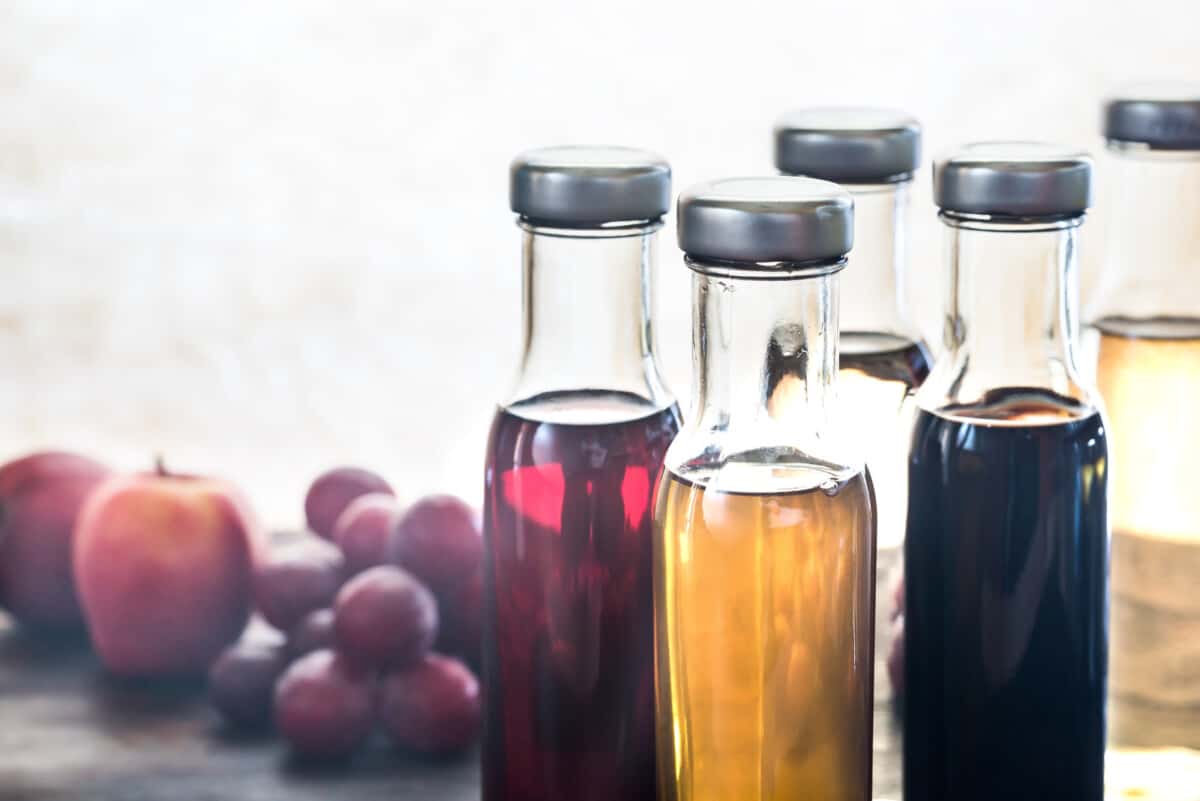
So you know what vinegar does to your fermented and if it fits your situation or not. But, if you finally decide you should use vinegar, which one should you use?
Apple Cider Vinegar: The favourite vinegar of the health gurus. It is a fermented product with healthy bacteria in it if not pasteurized. Visually, it is brown, and you can sometimes see “the mother” in it (this is the yeast and bacteria responsible for the fermentation). It is an interesting option to add at the beginning of the fermentation because you will be introducing a new variety of bacteria.
White vinegar: This vinegar is the go-to for pickling, and it is a distilled product. The average percentage of acetic acid in it is 7%, ranging from 5 to 8%. It will do its part in lowering the pH and protecting your veggies, but it has no beneficial bacteria in it. It is the most aggressive vinegar, taste-wise, being sour and harsh.
Balsalmic vinegar: This vinegar is made of grapes, looks almost black, and has a unique flavour. It might be interesting to use it when seasoning fermented sauces.
Rice vinegar: Even though rice vinegar looks a lot like white vinegar in colour, its taste is completely different. Its flavour is mildly sweet and delicate, with the tanginess characteristic of all types of vinegar.
The vinegar you should use depends on your goal for your fermentation project. But if in doubt, I would recommend apple cider vinegar. The one I least recommend is the white vinegar. Even though it is a great choice for pickling, its impact on fermentation makes it my least favourite. Additionally, it is much harder to add it in the right amount since it is usually more acidic than the others.
What Can I Use Instead of Vinegar?
Now you must be asking yourself, what can I use to protect my brine and help it have an acidic environment that won’t slow down my fermentation?
There are some alternatives, and it might be a bit controversial with some fermentation enthusiasts, but I strongly believe that the number one rule with fermentation is experimenting.
Brine from a previous batch: You already have a liquid with a safe pH, full of lactic acid bacteria, so you could add it to your new ferment. Also, you would not be wasting it!
In theory, it would be perfect. However, adding your existing brine to your newly made brine lowers the pH of the new ferment too quickly, which could generate undesirable effects like mushy vegetables.
The best way when using this method is to add just a bit of the previous brine so you don’t make it too acidic too quickly. Another option is making a small batch of fermented vegetables using only the leftover brine and seeing what you think of the result.
There are other options, but I won’t get into detail because I don’t think they are good overall. Those are Celery Juice, Starter Culture, and Whey. I would recommend using one of the methods described in this article instead (vinegar or brine from a previous batch).
Last but not least important, if you wish to slow the fermentation process and protect your ferment, you can add more salt to your brine. After all, salt has been the most used way of preserving food throughout history.
And remember to experiment! Try new techniques! If you lose a batch, there will always be the next!
